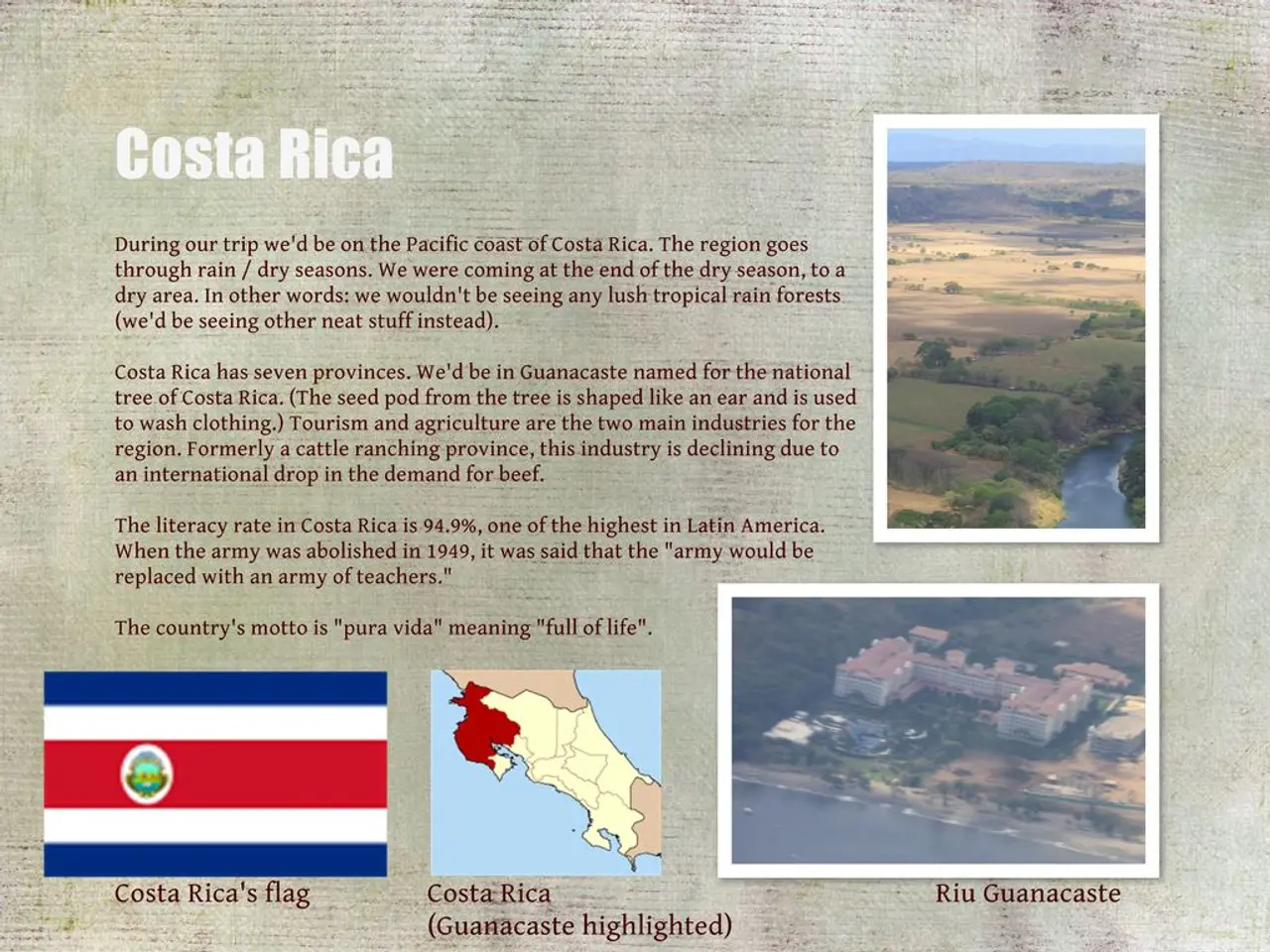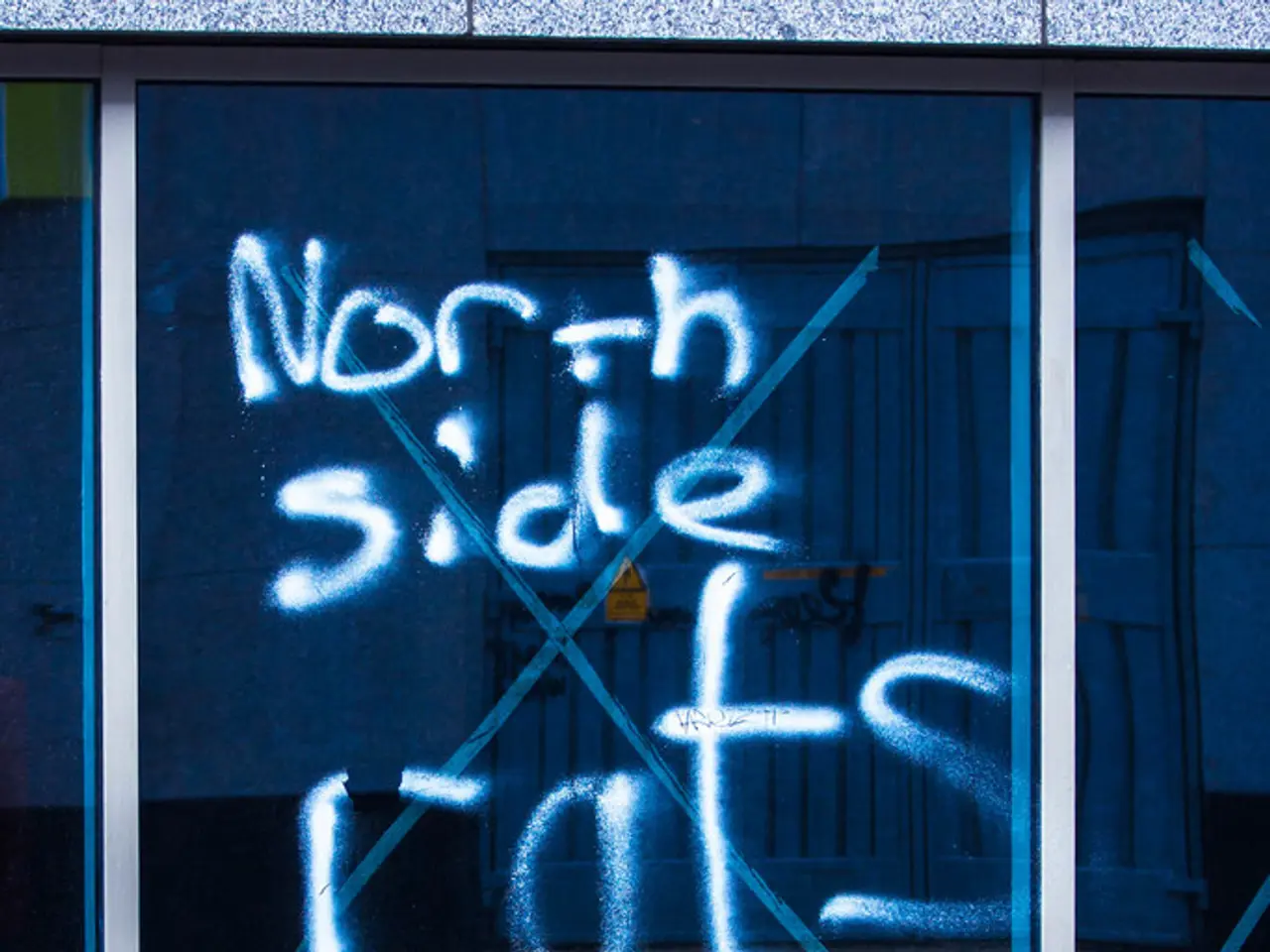Authorities in El Salvador approve permanent reinstatement of the nation's leading figure's right to seek repeated terms in office
In a swift procedure, President Nayib Bukele's re-election for the 2024 presidential term in El Salvador was approved by 57 pro-government deputies. This move stems from constitutional reforms passed in July 2025, which allow for indefinite presidential re-election and extend the presidential term from five to six years.
The reforms, pushed through the Legislative Assembly, dominated by Bukele's New Ideas party, were met with sharp criticism from opposition members. They argued that democracy was undermined, as the changes were approved overwhelmingly (57 to 3 votes). The reforms also abolished the previous two-round runoff election system, enabling Bukele to consolidate his power further after his 2024 re-election.
The implications of Bukele's re-election and the constitutional amendments are significant. They have effectively dismantled institutional checks and balances, reinforcing Bukele's control over the legislature, judiciary, and government institutions. This power consolidation coincides with a state of emergency under which mass arrests without warrants have targeted human rights defenders, journalists, and critics, many of whom have fled into exile.
Human rights organizations have condemned these developments as authoritarian and a threat to democratic governance. However, Bukele defends the reforms, arguing that indefinite re-election is common in 90% of developed countries, and accusing critics of double standards.
Bukele was re-elected last year with around 85% of the votes. His tough stance against gang crime in El Salvador has been a central part of his political platform. The current term of President Bukele will be extended from five to six years if the constitutional amendment is confirmed.
The parliament of El Salvador, where Bukele's party holds an absolute majority, has also approved the simultaneous holding of presidential, parliamentary, and municipal elections in the future. The second round of elections will be abolished.
The president of the legislature, Ernesto Castro, thanked his colleagues of the ruling party Nuevas Ideas in parliament. If confirmed in a second vote, which is considered certain, the constitutional amendment will allow President Bukele to run for re-election indefinitely, with a simple majority being sufficient to become president in the future.
The opposition has been vocal in their criticism. The Arena party's deputy Marcela Villatoro stated, "Today, democracy has died." Activists denounce arbitrary arrests and severe human rights violations in El Salvador. Despite this, Bukele jokingly referred to himself as the "coolest dictator in the world."
These developments have raised alarms internationally about the future of democracy and human rights in El Salvador. The new regulation ends the current presidential term on June 1, 2027, two years earlier than originally planned. The changes, if confirmed, will mark a significant shift in the political landscape of the country.
The parliament's decision to approve President Bukele's indefinite re-election policy, through abolishing the two-round runoff election system, has sparked intense controversy in the politics of El Salvador, with opposition members asserting that it undermines democratic governance (Today, democracy has died, according to Marcela Villatoro). The implicit closure of the legislative and judicial systems to potential checks is a source of concern for human rights organizations, who point to the increased number of mass arrests without warrants (arbitrary arrests) as supportive evidence (This power consolidation coincides with a state of emergency under which mass arrests without warrants have targeted human rights defenders, journalists, and critics, many of whom have fled into exile). These developments have significant implications for policy-and-legislation in El Salvador, potentially reshaping the general news landscape of the country for years to come.







